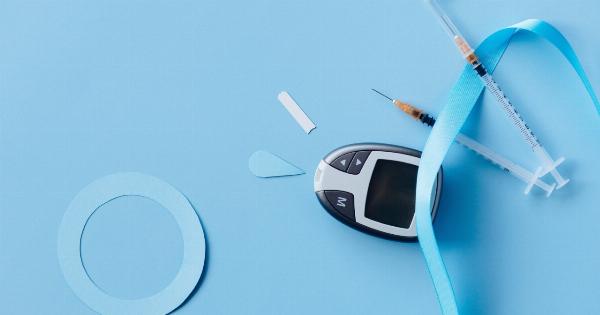Compulsive behaviors can be confusing and disruptive in many aspects of life. They can affect relationships, work, and overall mental wellbeing.
If you suspect that you or someone you know may be struggling with compulsive behaviors, taking a quiz can help shed light on the situation. Read on to understand more about compulsive behaviors and take our comprehensive quiz to assess your situation.
What Are Compulsive Behaviors?
Compulsive behaviors refer to repetitive actions or thoughts that a person feels driven to perform or think about. These behaviors are often difficult to resist and can result in temporary relief from anxiety or stress.
However, over time, compulsive behaviors can become more and more disruptive, negatively impacting one’s quality of life.
Common examples of compulsive behaviors include:.
- Excessive hand washing or cleaning
- Repetitive checking of doors, locks, or appliances
- Counting, tapping, or specific movement rituals
- Obsessive thoughts or worries
- Compulsive hoarding or collecting
- Ordering or arranging objects in specific ways
- Compulsive gambling or shopping
- Constantly seeking reassurance
It is important to note that occasional repetitive behaviors or thoughts do not necessarily indicate a problem.
However, when these behaviors become excessive, time-consuming, and interfere with daily activities, they might be symptoms of compulsive disorders.
Understanding Compulsive Behavior Disorders
Compulsive behaviors can be linked to various mental health conditions, including:.
- Obsessive-Compulsive Disorder (OCD): OCD is characterized by recurrent and unwanted thoughts, images, or impulses (obsessions) that lead to excessive repetitive behaviors (compulsions) aimed at reducing anxiety or preventing a feared event.
- Hoarding Disorder: This disorder involves persistent difficulty discarding or parting with possessions, regardless of their actual value, leading to the accumulation of excessive amounts of items and clutter.
- Body Dysmorphic Disorder (BDD): BDD involves obsession with perceived flaws in appearance, often leading to compulsions such as excessive mirror checking, grooming, or seeking reassurance related to appearance.
- Trichotillomania: This disorder involves recurrent hair-pulling resulting in noticeable hair loss and distress.
- Excoriation Disorder: Commonly known as skin-picking disorder, excoriation disorder refers to repetitive picking of the skin, resulting in tissue damage.
These are just a few examples of compulsive behavior disorders, and it is important to consult a mental health professional for a proper diagnosis and treatment plan.
Take the Compulsive Behaviors Quiz
To better understand your own behaviors and thought patterns, take our comprehensive quiz to assess the possibility of compulsive behavior disorder. Answer each question honestly and keep track of your responses to calculate your final score.
- Do you find it difficult to control excessive worrying or anxious thoughts?
- Do you feel a strong need to repeat certain actions or behaviors over and over again?
- Do you experience intense anxiety or distress when unable to perform a particular behavior?
- Do you spend excessive time every day engaging in repetitive behaviors?
- Have your compulsive behaviors significantly affected your relationships or daily life?
- Do you find it hard to resist the urge to perform repetitive behaviors?
- Do you experience a temporary sense of relief or decreased anxiety after performing a compulsive behavior?
- Do you feel distressed, depressed, or anxious due to your compulsive behaviors?
- Have you attempted to stop or reduce your compulsive behaviors without success?
- Do you often feel guilty or ashamed about your compulsive behaviors?
Scoring:.
- For every “yes” response to questions 1, 3, 4, 5, 6, 8, 9, and 10, assign yourself 3 points.
- For every “yes” response to questions 2 and 7, assign yourself 2 points.
- Add up your total score to find out your results.
Quiz Results
0-10 points: It is unlikely that you have a compulsive behavior disorder. However, it is always a good idea to monitor your behaviors and seek professional help if symptoms persist or worsen.
10-20 points: You may have mild symptoms of a compulsive behavior disorder. Consider consulting a mental health professional to address your concerns and explore treatment options.
20-30 points: It is possible that you are struggling with a moderate form of compulsive behavior disorder. Seeking professional help is highly recommended to assess your condition and develop a personalized treatment plan.
30+ points: Your score suggests a high likelihood of a compulsive behavior disorder. It is essential to seek professional help for an accurate diagnosis and appropriate treatment.
Seeking Professional Help
If you suspect that you or someone you know is dealing with compulsive behaviors that are significantly affecting daily life, seek the guidance of a mental health professional.
They can provide an accurate diagnosis and develop an individualized treatment plan to help manage symptoms and improve overall quality of life.
Remember, it’s essential to approach compulsive behavior disorders with empathy and understanding. With proper treatment and support, individuals can regain control and find relief from the distressing symptoms.






























